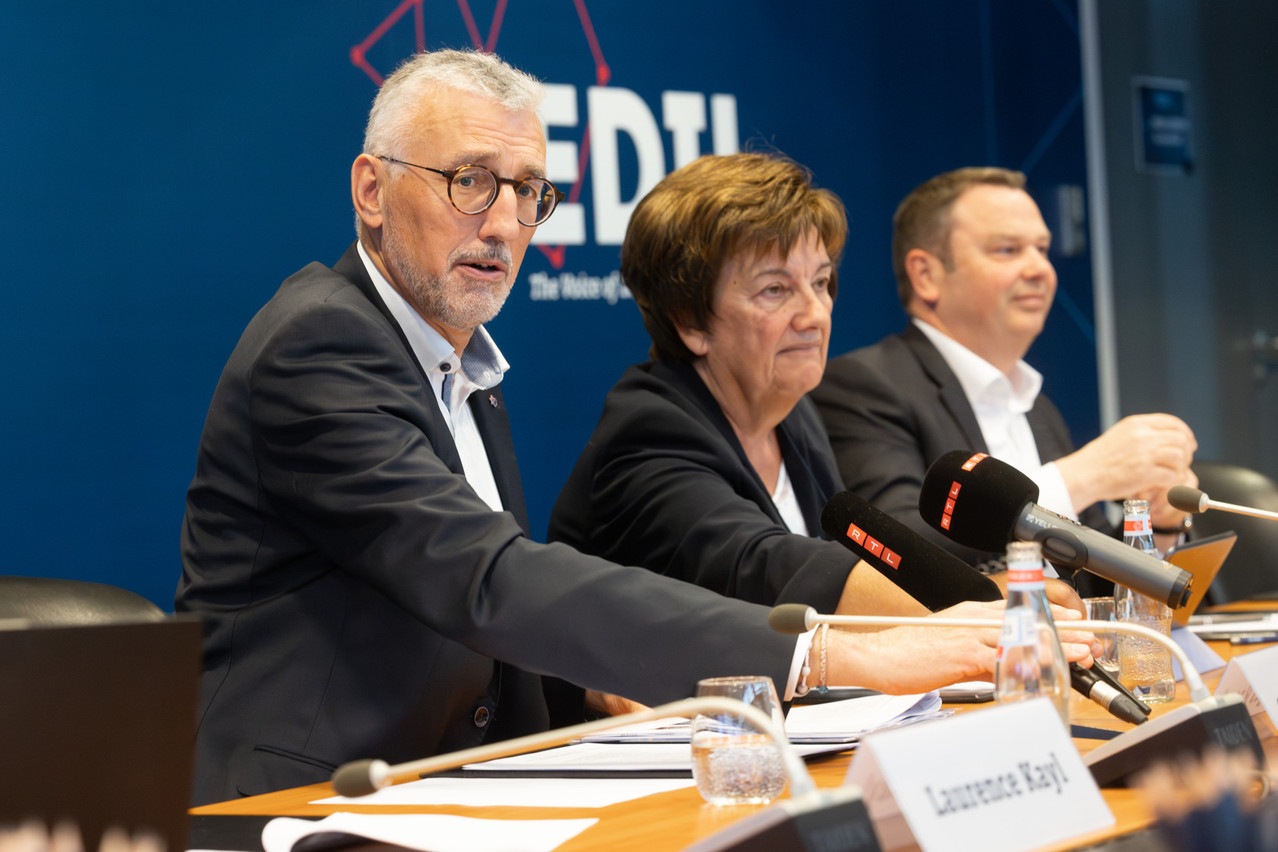Georges Rassel joined Paul Wurth as an engineer in 1988 and worked his way up through the company’s ranks, joining the group’s management committee in January 2011 as its operations director before graduating to managing director in January 2015, a role he held until joining the board of directors in February 2023.
Several months later, in June 2023, he was appointed vice chair of Luxembourg’s business federation Fedil, an organisation on whose board of directors he had sat since 2015.
And finally, as announced about a month ago, Rassel will replace as chair of the organisation following the general meeting on 23 April. Detaille, after five years in the top spot, will leave the board.
Rassel intends to “continue the work” of his predecessor, he said.
For her part, Detaille believes that believes that Fedil should be recognised as an expert rather than a political organisation. “We have expertise in the issues that concern us and we want to share it with all stakeholders to meet the challenges facing the industry,” she said. “We are a community of skills and committed people. We want to help the government make the right decisions without taking its place.”
New faces on the board
Other changes were made to the Fedil board at the annual meeting. Besides Detaille, also gone are Roland Bastian, , , , Romain Hoffmann and .
Their replacements are , , , , , and Henri Reding.
Detaille is delighted to see more women on the board, recalling that, when she joined Fedil 20 years ago, there was only one: herself. “There are now four. It’s still not enough, but things are changing.” She also expressed delight at the rejuvenation of the board, as a new class of board younger board member is making inroads. “A young generation who are taking up the torch with the ambition of modernising the industrial fabric,” she said, commenting on them. “They are rolling up their sleeves and taking risks even though they don’t have to. I’ve always said that being a member of the board of directors requires total commitment to serving the country.”
Looking back
Detaille’s tenure was a busy one, from the Covid-19 pandemic to the war in Ukraine.
Reflecting on these five years, Detaille emphasises the importance of intermediary bodies. “The pandemic has underlined how important it is for all the stakeholders in the economy and society to have effective representation in place, with the right links.”
“This,” she continued, “has ensured the continuity of the country’s industrial activity, with the exception of the construction sector, without the loss of a single life as a result. This also proves that when there is dialogue: when everyone is respectful and listens to other parties, it works.”
If she had to express one regret, it’s that the industry ultimately remains fairly unknown to the general public. “I said at the start of my mandate that I wanted to make the industry ‘sexier.’ I’m not sure I’ve quite achieved that goal, but I think we’ve still managed to show that industry is a place where people can come to work in safety and fulfil themselves.”
“We have industrial champions in Luxembourg who make things here that you’d never know existed. We’d like to publicise this more so that residents, politicians and young people are more interested in industry. We can’t always do it in the name of preserving business secrecy. The message we’d like to get across even more is that there’s a great deal of know-how in Luxembourg industry, in both cutting-edge and more traditional sectors.”
Zoom in on 2023
Last year was an intense one for Fedil, according to director . The year was marked by geopolitical instability, the direct consequence of which was a surge in energy prices and a succession of index brackets that weighed heavily on companies, despite the decisions taken at the tripartite meeting to respond to inflation by keeping the economy competitive by modulating wage indexation. It was also an election year, which ended with a new government taking office, one from which manufacturers expect a great deal and with which they hope to make proposals. This will be among Rassel’s tasks going forward.
This article in Paperjam. It has been translated and edited for Delano.
